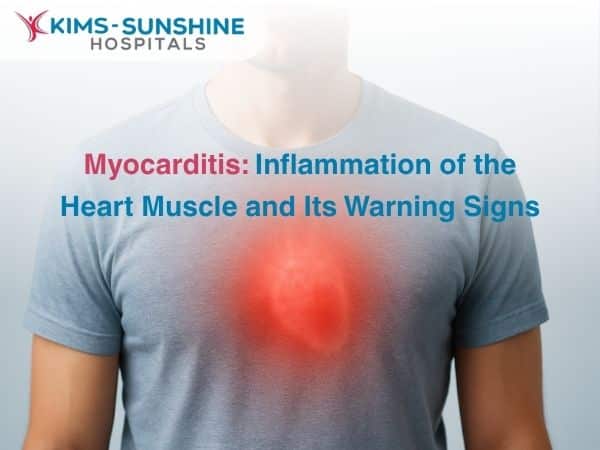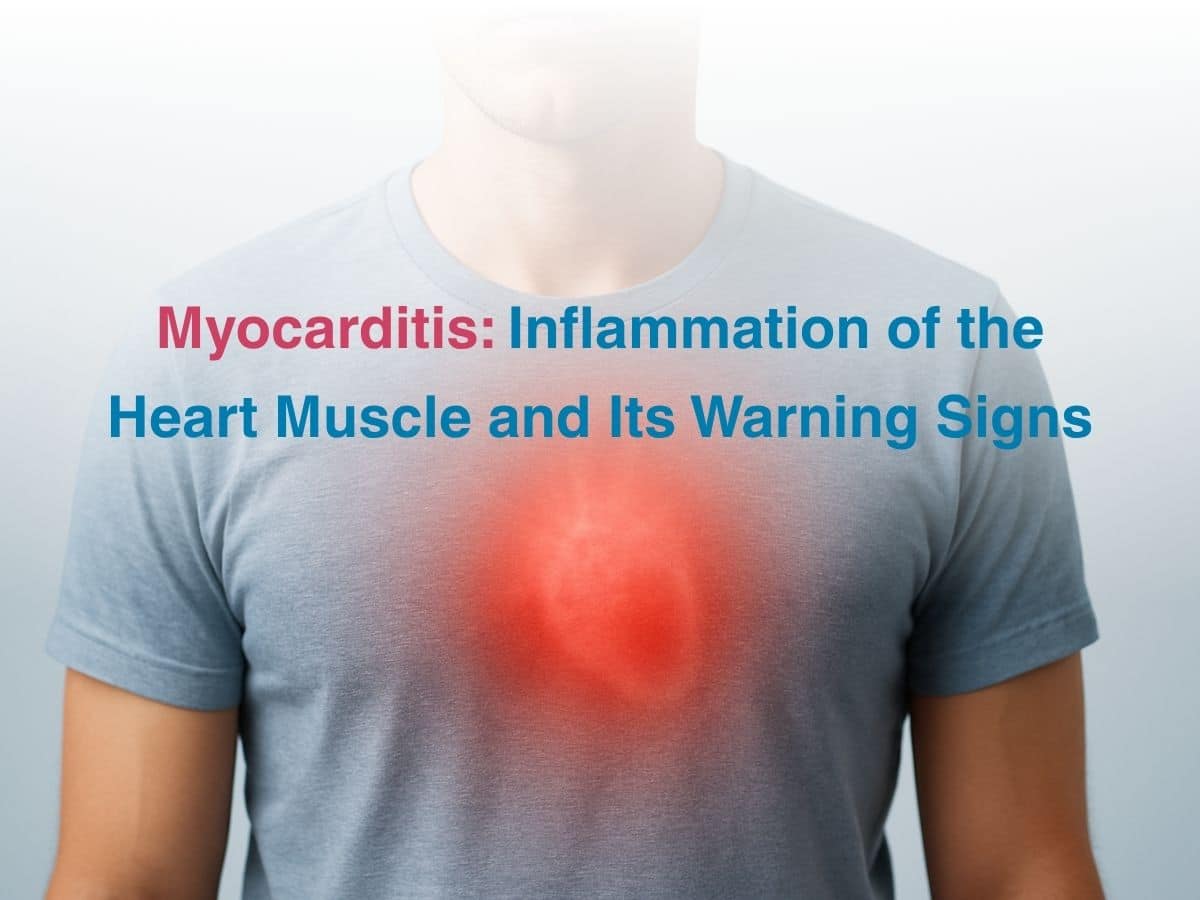
Myocarditis: Inflammation of the Heart Muscle and Its Warning Signs

The suffix “-itis” is used in medical terms to denote some form of inflammation. So, myocarditis means the myocardium or the muscles of the heart are inflamed. This can cause your heart to stop working normally- it will pump much slower than before or heart rhythm and function are not as good as before. It is mostly caused due to infections caused by viruses. India has the highest incidence of myocarditis in the world- almost 30 individuals out of every 1000 were affected, and this value is from a study done in 2021. Though this study focused on children alone, it is not too wrong to say that myocarditis affects millions of adults in the country too.
What Is Myocarditis?
As mentioned above, myocarditis is a condition where the heart muscles get enlarged and are not able to pump properly. This occurs mainly due to infections which can have a lasting impact in the body- by continuing to incite immunological reactions, long after they have passed. Myocarditis can be divided into different stages, based on severity and how much heart function is reduced.
Causes Of Myocarditis In Adults-
Some viruses which can cause myocarditis include flu viruses, coxsackie virus, adenoviruses, parvovirus B19, COVID-19 and herpes virus 6, though bacterial infections are also not very uncommon. Other agents include fungi, parasites or even heavy metals, pollutants or toxins that you are exposed to, on a regular basis. The main thing to remember here is that inflammation is caused due to an overactive immune system- which means you are at higher risk than usual of suffering from myocarditis, if you already suffer from autoimmune conditions like lupus or rheumatoid arthritis respectively.
Myocarditis, very rarely, can be caused as an unwanted side effect by medications that you may be taking to treat some other chronic condition- like antidepressants, antiepileptics, antibiotics, diuretics or benzodiazepines, among others. More recently, people who were vaccinated with the COVID-19 vaccines by Moderna or Pfizer have had to deal with myocarditis as an unfortunate side effect, but with medication, they got better.
Symptoms Of Heart Muscle Inflammation-
The thing with myocarditis is – some people are totally asymptomatic, while others show subtle signs. So, being aware of this condition in the first place is what is crucial. Let us look at some common symptoms that people experience-
- Feeling tired most of the time
- Not being able to breathe freely
- Having a fever
- Chest pain and palpitations are also common.
- Feeling faint
- Having a poor appetite and feeling weak
- Fluid retention in the legs and feet
- Not being able to exercise or complete any strenuous task.
Myocarditis Diagnosis Tests (ECG MRI, Biopsy)-
A timely diagnosis involves the use of different kinds of approaches and tests- like a physical exam, taking a detailed medical history and also performing specific diagnostic tests. Your doctor will hence recommend that you get detailed imaging done- in the form of MRI, PET, X-rays, ECG and catheterisation to check for any anomaly in function and structure. A heart biopsy may also be recommended at times.
Treatment Options For Myocarditis-
Myocarditis, thankfully, is not a chronic condition that has no cure. It can go away all by itself if it is very mild, but if it is more severe in nature- then taking specific medications can help you recover completely. For some people who have had myocarditis for a long time but have not gotten diagnosed, heart failure is a very real possibility- and drugs to target this can be used to make you get better. If there is an autoimmune component to your myocarditis, then you may be prescribed corticosteroids. Some people respond well to intravenous immunoglobulin transfusions- which can help mediate their immune system better. However, if you have had undiagnosed myocarditis for years and your heart is not able to function adequately, then surgery may be necessary- an LVAD, pace maker or even a donor heart in the most extreme of cases can be really helpful in such cases.
Conclusion
Myocarditis is a condition that is highly preventable in many cases with proper hygiene and is definitely treatable, if diagnosed in a timely manner. Most individuals get better and never need any long term care, but for others, medications can help. Youngsters, men and people with chronic illnesses like diabetes and hypertension are especially vulnerable to developing myocarditis. If you have had myocarditis before, then you can get affected again, so take good care of yourself by focusing on eating a heart friendly diet and making sure your lifestyle is geared to help, rather than worsen any pre-existing condition in the long term.






